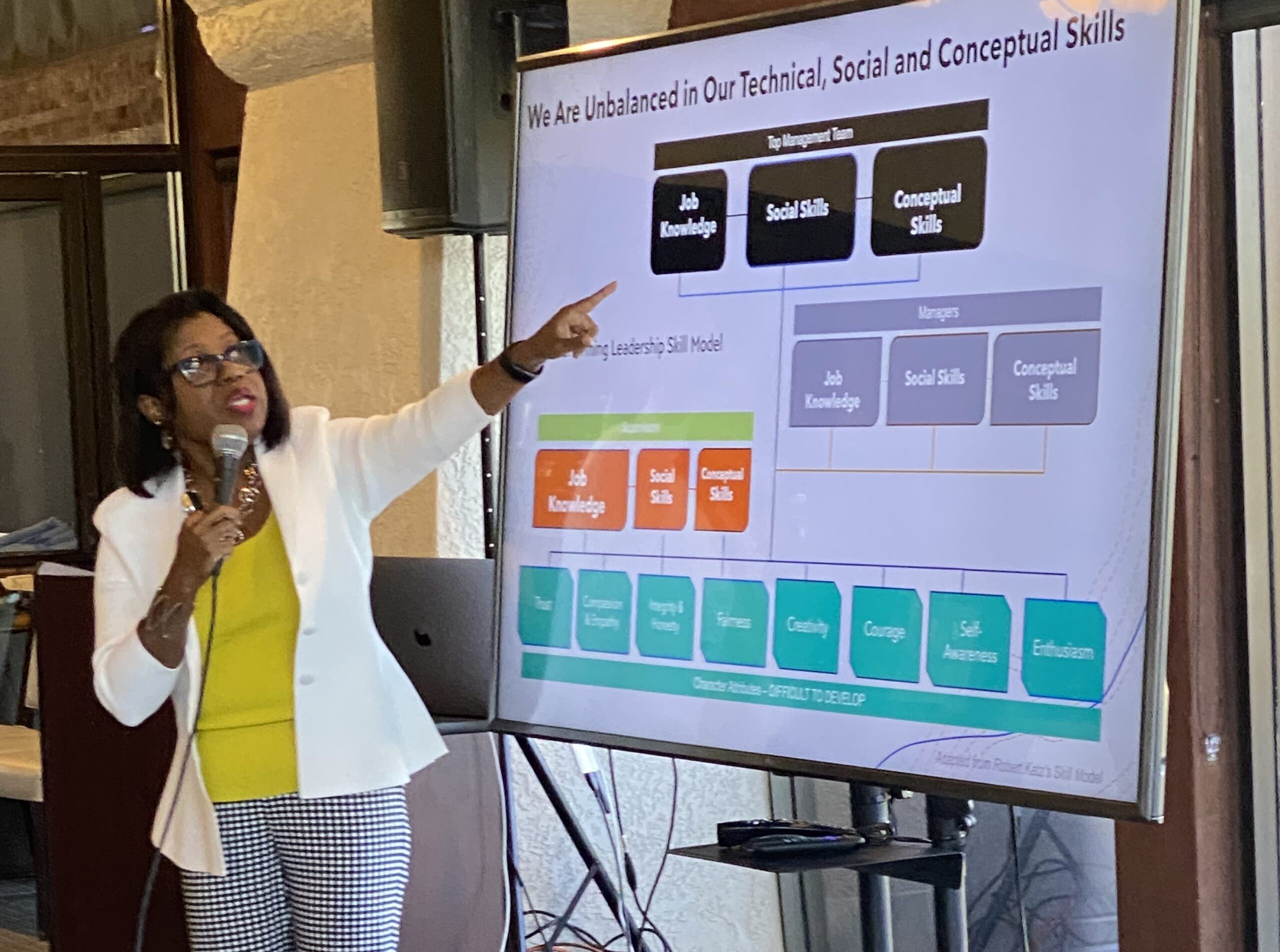According to the Center for Intentional Leadership, Intentional Leadership goes underneath the surface to determine what drives behavior and results…. By uncovering and changing the underlying beliefs, assumptions and practices contributing to results, positive change is dramatic and sustainable.
Intentional Leadership is the act of deciding how you want to be perceived while actively evaluating and pursuing ways in which you can improve those perceptions.
Every one of us has an aspect of our brand that needs to be fine-tuned. Recognizing you have an area of your brand that needs to be fine-tuned AND actively pursuing ways to improve how your brand is perceived is what makes for an intentional leader.
Case Study:
I had the opportunity of helping a board transition from one leader to another. From coaching them on the exiting conversation and process with the outgoing CEO to helping them source, select, and onboard a new CEO.
This new CEO had presence. Lots of it. He was intentional in the type of job he wanted, and when he spoke, you could feel the passion he had for the work and the opportunity. So much so that some board members were initially intimidated by it. It was why they almost passed him over – they felt they might get “run over” by his drive and ambition. This situation reminded me of one of my favorite quotes:
“Even if you’re on the right track, you’ll get run over if you just sit there.” – Roy Rogers
They knew what they needed but were afraid of it when they were presented with what they asked for – but that’s for another story.
Eventually, the leader was hired … and found a mess. No one knew exactly how bad it was, but I can tell you this, working with him as his coach, if he did not have a personal vision and were unable to convey that through the organization with intention and influence, he would not have stayed, nor would he have realized the success, through turmoil, that he is experiencing to this day. His impact continues to be felt, and his experience reminds me that intentionality also means you have to be willing and capable of making some tough decisions. If not, you’re not ready.
Discover Your Effectiveness by Shaping Your Intentions
Effective leaders contemplate how conscious they are about what they’re doing and the direction they’re headed. Get in the practice of thinking about what you’re going to do next to help you plan for and accomplish your goals.
Intentional leaders deliberately set about to take action (as opposed to being reactive) and make decisions to achieve organizational goals. The results will be a leader who has produced value and who has advanced business initiatives. This type of forward-thinking leader makes it their business to think through potential obstacles and then put strategies in place and leverage talent in ways that lead to results – results that achieve the common goal.
Intentional leaders know there is no need to motivate – their leadership results in staff that is self-motivated. There is no need to constantly remind staff of what they should be doing because by leading with intention, staff already feel empowered.
Why is being intentional so important?
- Intentions are power-filled. When you are intent upon doing something, you structure your time and set situations so you can make it happen. In essence, knowing your intentions brings you influence that is not available by any other means.
- Your intentions keep plans foremost in your mind. Whenever you think about what you want to do, you are reminded of your goals, your why. For example, if you intend to exercise more, you’ll find yourself thinking about how you will accomplish exercise each day; how you will work it into your schedule. Your intentions set you on a path of accomplishment and excellence because they are consistently on your mind.
- You can have short-term and long-term intentions. A short-term intention may be to arrive a few minutes early to work and have time to “ready” yourself for the day. A longer-term intention might be doing your best work consistently so you are recognized for promotional opportunities. Utilizing both levels of intention keeps you progressing in a positive direction.
- Being intentional puts you in control. It’s up to you to determine what you want in life and what you are willing to do to achieve it, thus framing your intentions. It’s a paradox – you control your intentions, and your intentions drive your actions. You’ll prosper in the long run, though, because setting your intention is making a conscious decision to accomplish your goal, what you want in life, regardless of whether the goal is accomplished that day, that month, or years in the future.
- Intentions give you confidence. When you intend to do something, when you have a plan, and you are going for it, you are optimistic about the outcome because you know you want to accomplish it. You move forward confidently, self-assured; your efforts galvanized to live your “why.”
- Others may view you more favorably. We are all searching for someone to model, someone to look up to, receive guidance from, who sets a clear, positive example. Your intentions speak loudly to your leadership and enable you to be the one that others look to.
On the path to the E-Suite, you’re building a reputation as an effective executive. You never get a promotion on the day it is offered; it occurs along the way, in the actions you take, the words you speak, and the decisions you make.
Your intentions give you ultimate authority over your future.
When you know what you want to do with your life, you can live the life you truly want. Your intentions bring you confidence, provide powerful guidelines, and spark your motivation to live your best life each and every day!



